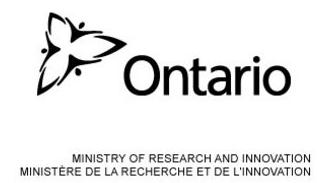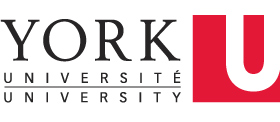About this Project
This is the home of the Web Archives for Longitudinal Knowledge (WALK) Project, a collaborative effort by the University of Waterloo, the University of Alberta, and York University to bring Canadian Web archival partners together.
Why is this important? Web archives have a lot of very useful information in them! As websites disappear every second on the Web, we need to save sites now. Luckily, we've been saving sites since 2005: even if they don't exist on the live web today, we may have them saved for historical research.
For example, did you know that the Green Party of Canada ran a public blog on their website back in 2008, where anybody could write in? Today, if you try to visit them, you'll receive a "403 Access Denied error"). Look for yourself: on our "advanced search" page, you can search "harper" and "fascist" with a proximity of "25" to see some provocative posts on this Green Party blog (results here).
With literally millions of pages – there are 14,490,355 "documents" in the archive found here – you sometimes need to pull your gaze back to see how ideas have risen and fallen. For example, we can discover how terms like "depression" and "recession" waned and rose over time, through our trends view. We've tentatively found that left-wing groups tended to use the word "depression" more than centrist or right-wingers, who used "recession" more during the economic crisis? There is a literal treasure trove of stories to be found in these collections, limited only by your imagination.
On this site, we currently provide access to the University of Toronto's Archive-It Collection of Canadian Political Parties and Political Interest Groups, which they have been collecting since late 2005. For information on what is within this collection, please see the University of Toronto's page. This site uses the UK Web Archive's shine interface, which they made available here. More collections will soon be forthcoming.
We would love your comments and suggestions. Please contact Professor Ian Milligan (History, University of Waterloo) at i2millig@uwaterloo.ca.
Some Necessary Caveats
The generated results need to be used with caution. As you can see from this example visualization from the political parties collection, the composition of archival collections changes dramatically over time: spikes and valleys may not be representative of actual historic shifts, but changes in the material. Similarly, the random search will be pulling results from tens, or even hundreds of thousands of results - many of which are automatically-generated pages within the web structure of these sites. Always dig into things, and question the results you are getting (which you should do with all databases, of course).
We began with some provocative examples above, but we really do want to stress how you need to use these results with caution. The underlying data is messy. If you really want to get into this material - exploring link graphs, or playing with the plain text of a decade of a political party's website - alternative research approaches such as the warcbase platform might be more fruitful.
Websites Included in this Database
All websites are not included equally, but you may find this list useful. Note the date ranges below - many sites only begin in 2006.
- Cosmopolitan Party of Canada (agoracosmopolite.com, 2005-2012)
- Bloc Québécois (blocquebecois.org, 2005-2015)
- Canadian Action Party (canadianactionparty.ca, 2005-2015)
- Christian Heritage Party (chp.ca, 2005-2015)
- Coalition to Oppose the Arms Trade (coat.ncf.ca, 2006-2015)
- Communist Party of Canada (communist-party.ca, 2005-2015)
- Communist Party of Canada (Marxist-Leninist) (cpcml.ca, 2005-2015)
- Freedom Party of Canada (freedomparty.ca, 2005-2015)
- Canadian Clean Start Party (geocities.com/CapitolHill/2823, 2005-2009)
- Canadian Traditional Conservative Party (geocities.com/upcf, 2005-2009)
- Green Party of Canada (greenparty.ca, 2005-2015)
- Democratic Canadian Union (members.aol.com/totarisse/ucd-dcu.html, 2005-2009)
- Marijuana Party of Canada (partimarijuana.org, 2005-2015)
- Parti populaire des putes (walnet.org/ppp/index2.html, 2005-2015)
- Direct Democracy Canada (wegovern.ca, 2005-2009)
- Western Block Party (westernblockparty.com, 2005-2015)
- Socialist Party of Canada (worldsocialism.org/canada, 2005-2015)
- Canadian Peace Alliance (acp-cpa.ca, 2006-2015)
- Assembly of First Nations (afn.ca, 2006-2015)
- Les Intellectuels pour la souveraineté (cam.org, 2006-2009)
- Canada First (canadafirst.net, 2006-2015)
- Canadian Children's Rights Council (canadiancrc.com, 2006-2015)
- Canadian Association for Free Expression (canadianfreespeech.com, 2006-2015)
- Canadian Landmine Foundation (canadianlandmine.org, 2006-2015)
- Council of Canadians (canadians.org, 2006-2015)
- Canadian Civil Liberties Association (ccla.org, 2006-2015)
- Canadian Council on Social Development (ccsd.ca, 2006-2015)
- Conservative Party of Canada (conservative.ca, 2005-2015)
- David Suzuki Foundation (davidsuzuki.org, 2006-2015)
- Égale Canada (egale.ca, 2006-2015)
- Equal Voice (equalvoice.ca, 2006-2015)
- Fair Vote Canada (fairvotecanada.org, 2006-2015)
- Green Communities Canada (gca.ca/indexcms, 2006-2015)
- Heritage Front (heritagefront.com, 2006-2015)
- Liberal Party of Canada (liberal.ca, 2005-2015)
- Libertarian Party of Canada (libertarian.ca, 2005-2015)
- Mouvement national des Québécoises et Québécois (mnq.qc.ca, 2006-2015)
- National Association of Women and the Law (nawl.ca, 2006-2015)
- New Democratic Party of Canada (ndp.ca, 2005-2015)
- International Campaign Against Sharia Court in Canada (nosharia.com, 2006-2015)
- Ontario Coalition Against Poverty (ocap.ca, 2009-2015)
- Canadian Centre for Policy Alternatives (policyalternatives.ca, 2006-2015)
- Citizens for Foreign Aid Reform (populist.org, 2006-2010)
- Charter Committee on Poverty Issues (povertyissues.org, 2006-2015)
- Public Policy Forum (ppforum.com/en, 2006-2015)
- Canadian Coalition for the Rights of Children (rightsofchildren.ca, 2006-2015)
- International Socialists (socialist.ca, 2006-2015)
- Canadian Council for Refugees (web.net/~ccr, 2006-2015)
- Canadian Network to Abolish Nuclear Weapons (web.net/~cnanw, 2006-2015)
- Western Canada Concept (westcan.org, 2006-2015)
Project Team
This project is brought to you by the Web Archives for Historical Research Group at the University of Waterloo, York University Library, and the University of Alberta Library. Project leadership provided by:
- Ian Milligan, assistant professor of history at the University of Waterloo and principal investigator of the Web Archives for Historical Research Group. Milligan is PI of the Compute Canada Research Platforms and Portals application that prprovides the infrastructure behind WALK.
- Nick Ruest, digital assets librarian at York University. He oversees the development of data curation, asset management and preservation initiatives, along with creating and implementing systems that support the capture, description, delivery, and preservation of digital objects having significant content of enduring values. Ruest is co-PI of the Compute Canada Research Platforms and Portals WALK application.
- Geoff Harder, Associate University Librarian at the University of Alberta Libraries (UAL). His responsibilities include strategic development of UAL's digital initiatives, which includes research data management, repositories, and digital scholarship support. Geoff serves on a number of national and international data and preservation organizations, including the National Executive Committee for the Consortia for Advancing Standards in Research Administrative Data (CASRAI), the Board of Directors for the CLOCKSS preservation network (an extension of Stanford's LOCKSS technology), and the Advisory Committee committee for the Public Knowledge Project (PKP) based out of Simon Fraser University. Geoff has been actively involved in the development of the web archiving program at the University of Alberta since its beginning in 2010.
- Dr. Umar Qasim is the Digital Preservation Officer at the University of Alberta Libraries and responsible for the libraries digital preservation program. He maintains and shares expertise on digital preservation with the University of Alberta Libraries, the University community, and the professional community of practice in large. His research interests lie in the areas of digital preservation, wireless sensor networks, information retrieval, information filtering, text mining and optimization.
- Sam Popowich is Discovery Systems Librarian at the University of Alberta Libraries. He is responsible for the libraries' discovery strategy, including Blacklight implementation. GitHub, Twitter: @redlibrarian
- Dr. Geoffrey Martin Rockwell is a Professor of Philosophy and Humanities Computing at the University of Alberta. He has published on textual visualization and analysis, and computing in the humanities including a book the MIT Press, Hermeneutica: Computer-Assisted Interpretation in the Humanities. He is a co-developer of Voyant Tools, a suite of text analysis tools, and leads the TAPoR project documenting text tools. He is currently the Director of the Kule Institute for Advanced Study and blogs at theoreti.ca.
- Dr. Todd Suomela is CLIR-DLF Postdoctoral Fellow for Data Curation in the Sciences and Social Sciences at the University of Alberta. He works on collection assessment, project management, web archive education, documentation, and research outreach. He studies the use of web archives in scholarly research, crowdsourcing in the humanities and sciences, and research data management across disciplines. He has published and presented on citizen science, digital humanities, web archiving, and data quality. His personal website is at toddsuomela.com and he can be followed on Twitter @tsuomela.
- Sonya Betz is Digital Initiatives Projects Librarian at the University of Alberta Libraries. She is responsible for the project management and coordination of a wide range of digital initiatives, and is the service manager for UAL's journal publishing program. She works with project teams to define and integrate end-user needs into application development, and has published and presented on user experience in digital repositories and discovery tools.
- Peter Binkley is the Digital Initiatives Technology Librarian at the University of Alberta Libraries. He leads the Digital Initiatives development team in various collaborations with librarians and other stakeholders, to develop repository and preservation services and systems for the library's digital collections.
A team of research assistants also provided code, testing, thoughts, and everything else under the sun. Our thanks to Shawn Dickinson, David Hussey, Danielle McDonald, and Jeremy Wiebe.
At the University of Toronto, Nicholas Worby provided access to our collections and on-site help with their Archive-It Account. Finally, at the Internet Archive, our thanks to Jefferson Bailey for facilitating access to this collection.
How to Cite this Material
If you cite a webpage found using this database, please cite it as follows:
- Citation format:University of Toronto Libraries, collection name, Archive-It collection number (based on the url), if going down to the title level, title of the seed and wayback url.
- Example of a collection-level citation: University of Toronto Libraries, Canadian Political Parties and Interest Groups, Archive-It Collection 227.
- Example of an item-level citation: University of Toronto Libraries, Canadian Political Parties and Interest Groups, Archive-It Collection 227, Canadian Action Party, http://wayback.archive-it.org/227/20051004191340/http://canadianactionparty.ca/Default2.asp
If you found it using WebArchives.ca, we would love a mention in your citation as well, i.e. "found via WebArchives.ca." Your discovery method matters.
If citing findings from the Trends graph, please cite the page.
Acknowledgements
We would like to thank the UK Web Archive for developing this platform, and the University of Toronto Libraries for providing access to their Archive-It Collection of Canadian Political Parties and Political Interest Groups. Invaluable computing assistance was provided by Compute Canada and the York University Library. Our sincerest thanks are also due to Archive-It.
We would also like to acknowledge the generous financial support of the Social Sciences and Humanities Research Council of Canada and the Ontario Ministry of Research and Innovation's Early Researcher Award program. Computing infrastructure is provided by a Compute Canada Research Platforms and Portals grant.





